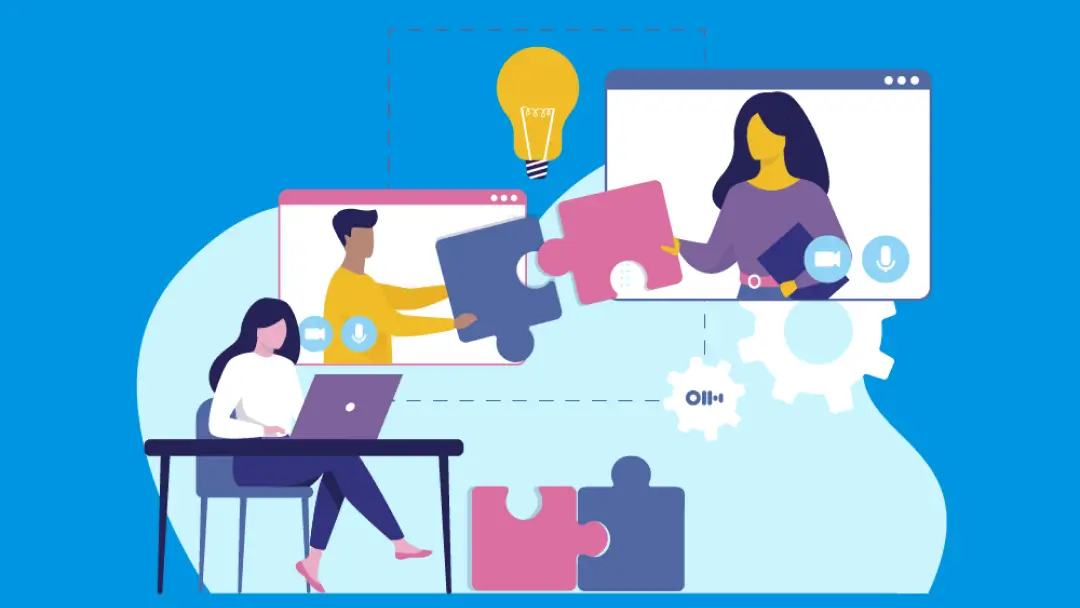Top 12 Interviewing Skills Every Professional Needs to Know

Great interviews lead to great hires — and strong interviewing skills help you make smarter hiring decisions.
A good interview isn’t just about asking the right questions. It’s about creating space for the candidate to reveal their potential (or their red flags) and prove how they’ll fit in. Even seasoned interviewers can miss critical cues or fall into common traps, like leading questions or personal bias. The good news? Interviewing is a skill you can refine.
Let’s break down the top 12 interviewing skills every professional needs to master.
12 top interviewing skills
When you build out a team, you’re looking for candidates who can contribute to your company’s mission and growth. Here are some interviewing skills to help you narrow down your candidate pool and hire the best talent:
1. Research and prepare
All interviewees know to arrive prepared — but this advice applies to interviewers, too. Take some time to understand the nature of the position you’re looking to fill and precisely what you’re looking for in a candidate. This helps you evaluate candidates on the qualities that matter most.
Then, review the candidate’s application, resume, and any other materials they provided so you can ask relevant, insightful questions and gauge whether they meet the requirements for the role. Jot down any questions you have about their experience and skills, including anyything you want them to clarify. This helps you stay organized and avoid missing details.
2. Create a comfortable environment
Nobody does their best thinking when they’re stiff and nervous, so give the candidate a chance to loosen up. Set a welcoming tone from the start of the interview — smile, make a little small talk, and give them a quick rundown of how the interview will go. Simple things like offering water or keeping body language open can also make a big difference. A relaxed candidate gives more natural, honest answers (instead of nervously reciting their resume).
3. Have an open mind
You may have an idea of the “perfect” hire, but don’t let that box you in. Some of the best candidates don’t check every traditional box — and that’s a good thing. Unconventional candidates bring fresh perspectives and a unique skill set to the team.
Look beyond job titles and resume bullet points to see how the candidate’s skills, experience, and personality could contribute to the team’s dynamic. Also, be aware of any unconscious biases you may be bringing to the table. It’s easy to fall into the trap of favoring candidates who share your background, education, or interests, but doing so could limit the diversity of thought and experience within your team.
4. Ask open-ended questions
Ditch yes-or-no interview questions whenever possible. They don’t give you much to work with. Instead, ask open-ended questions to encourage the candidate to elaborate on their experiences and thought processes.
For example, instead of asking, “Have you ever dealt with high-pressure situations at work?” phrase it like this: “Tell me about a time you dealt with a high-pressure situation at work.” This opens up a conversation about how the candidate handles stress, prioritizes tasks, and solves crucial problems.
5. Be flexible, but stay on track
Sometimes, the conversation might veer off course. When this happens, be flexible enough to follow interesting tangents or explore something unexpected, like a unique skill set or a hobby you have in common. Just keep the bigger picture in mind. The goal is to learn about the candidate and cover the key areas you need to assess.
6. Encourage thoughtful responses
Sometimes candidates need a second to think things through, so don’t rush them to answer questions. Pausing gives them space to craft a thoughtful response — plus, it shows you how they process information.
If something’s unclear, don’t hesitate to clarify your question. Just like in regular conversation, you want to make sure both sides are on the same page. And if you need to clarify or challenge an answer, do it in a friendly, open way. It’s about getting to the real truth, not playing “gotcha.”
7. Listen actively
Active listening means giving the candidate your full attention — no distractions, no zoning out. When candidates feel heard, they open up more and share insights that reveal their true potential, passion, and depth of experience. It creates a connection that shows you who they are beyond their resume.
Body language can demonstrate your engagement. Nod, maintain eye contact, and ask follow-up questions that show you’re truly processing what they’re saying. You can even paraphrase their answers to expressunderstanding, like, “So, what you’re saying is…”
8. Read between the lines
What isn’t said can be just as important as what is. If a candidate hesitates when talking about a certain topic or gives vague answers, it might be worth exploring further. Don’t take things at face value — dig a little deeper to get a true sense of their strengths and weaknesses.
It’s also helpful to pay attention to subtle cues like body language and tone of voice. This information tells you how comfortable they are, if they’re being fully transparent, and how they act under pressure — details that can reveals a lot about how they’ll fit into your team.
9. Capture the interview with automated notes and summaries
Taking notes during the job interview used to be a must in order to ensure you captured the key points, the candidate’s responses to your questions, specific examples they provided, and how their skills seem to align with the role.
Now, with Otter, you can focus on the interview instead of your notes, and Otter will provide automated notes and summaries, giving you everything you need to refer back to when evaluating candidates. Plus, you can ask Otter AI Chat questions to generate a follow-up email to the candidate. Otter is every recruiter’s best friend.
10. Test problem-solving skills
Problem-solving is a vital skill for many roles, so take the opportunity to test your candidate’s chops during the interview. Instead of just asking about past experiences, present them with a hypothetical problem related to the role and ask how they’d solve it. Whether they break down the problem logically or think outside the box, their response gives you valuable insights into their critical thinking, creativity, and ability to remain calm under pressure.
11. Gauge cultural fit
A candidate’s cultural fit is just as important as their education and experience. Learn how they’ll contribute to the team’s dynamics and how their values align with the company’s.
Ask questions about how they handle conflict and work collaboratively. This shows you how their work style and personality might mesh with your team’s. In turn, it’s be easier to determine whether they’ll thrive in the position they’re applying for.
12. Follow up
After the conversation ends, don’t forget to follow up. A follow-up message reinforces your professionalism and shows you appreciate the candidate’s time. And, if the candidate seems like a good fit, it’s an opportunity to update them on the next steps forward.
Otter AI analyzes your interview make follow-ups a breeze. Ask Otter AI Chat about things the candidate mentioned, any red flags that came up, and what follow-up questions you should ask in your next interview. Or, ask Otter AI Chat how you performed in the interview, and use that feedback to improve your technique on the next one. Otter AI Chat can also generate a thank-you email or suggest personalized next steps. The possibilities are truly endless.
Otter is your secret weapon for interview success
With real-time transcriptions and automatic summaries, Otter captures every important detail during interviews. No more scrambling to remember how candidates answered your questions — Otter keeps everything clear and organized. Plus, Otter AI Chat can help you come up with interview questions in real time and offer insights on the candidate’s responses.
Try Otter today to start elevating your interview game.




















